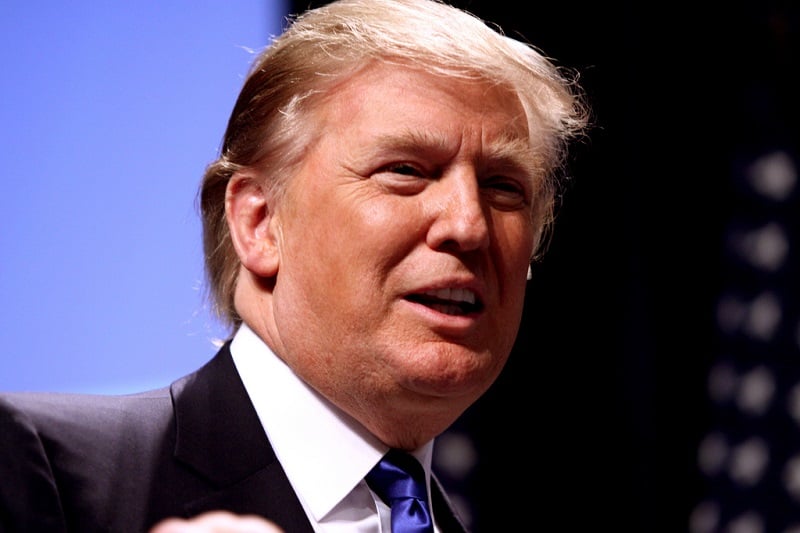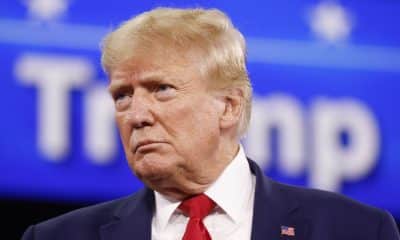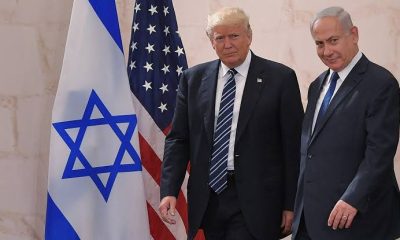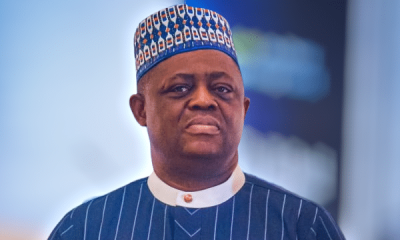World News
US Withdraws From UN Human Rights Council, Accuse Council Of Hypocrisy And Selfishness


The United States has withdrawn from the UN Human Rights Council , calling it a “sewer of political bias.”
The “hypocritical and selfish” body ridicules human rights, “said UN Representative Nikki Haley.
Activists said that the US move could hamper efforts to monitor and address human rights abuses around the world.
Formed in 2006, the Geneva-based Council in Switzerland has been criticized for allowing countries with questionable human rights records to be members.
Haley announced the country’s intention to leave the Council at a joint press conference with Secretary of State Mike Pompeo, who called the United Nations a “poor human rights defender.”
UN Secretary-General António Guterres said in a statement released by his spokesman that he would “prefer” the United States to remain on the Council.
In a statement posted on the Council’s Twitter account, UN High Commissioner for Human Rights Zeid Ra’ad Al Hussein said the US withdrawal was “disappointing, if not really surprising, news.” “Given the situation of the #Human Rights in the world today, the US should be moving forward, not backing down,” he added.
Israel, on the other hand, praised the decision.
"Disappointing, if not really surprising, news. Given the state of #HumanRights in today's world, the US should be stepping up, not stepping back" — UN Human Rights Chief #Zeid following USA decision to withdraw from U.N. Human Rights Council.#StandUp4HumanRights
— UN Human Rights (@UNHumanRights) June 19, 2018
The American exit from the Council comes amid intense criticism of the Trump government’s policy of separating migrant children from their parents on the US-Mexican border.
On Monday, Hussein called the policy “inconceivable.”

Allies
The BBC News correspondent in New York, Nada Tawfik, notes that this is only the latest rejection of multilateralism by the Trump administration preceded by others, and that “it will likely undermine the efforts of those who turn to the United States to protect and promote human rights in the world. ”
“The United States has always had a conflicting relationship with the UN Human Rights Council.The Bush administration decided to boycott the Council when it was created in 2006 for many of the same reasons cited by the Trump administration,” she says, adding that the UN ambassador at the time was John Bolton – now President Trump’s national security adviser and a strong UN critic.
Only in 2009, under the Obama administration, the United States returned to the Council.
“Many allies have tried to persuade the country to stay in. Even the many who agree with Washington’s lingering criticism of the body believe the United States should actively work to reform it internally instead of untying itself,” says Tawfik.

What is the UN Human Rights Council?
The UN created the Council in 2006 to replace its Human Rights Commission, which faced widespread criticism for allowing countries with a history of human rights violations to become members.
A group of 47 elected countries from different regions of the world are serving three-year terms in the Council.
They meet three times a year and analyze the human rights records of all UN members in a special process – known as the Universal Periodic Review – which, according to the Council, gives countries the opportunity to present actions that have been taken to perfect performance in this area in its territorial jurisdiction.
The Council also sends independent experts and established commissions of inquiry to report human rights violations in countries such as Syria, North Korea, Burundi, Myanmar and South Sudan.
Why did the US decide to leave?
The decision to leave the agency follows years of criticism from the United States.
Initially (in 2006), Americans refused to join the Council, arguing that, like the old one, the new commission had allowed the accession of countries with questionable human rights records.
US entry only occurred in 2009 under the Obama administration, and in 2012 the country was re-elected as a member.
But human rights groups again criticized the body in 2013 after China, Russia, Saudi Arabia, Algeria and Vietnam were also elected participants.
This was followed by Israel’s unprecedented boycott of one of the Council’s reviews, alleging unfair criticism by the agency. It was the first time that a country boycotted a review of the UN Council.
The announcement of the Council’s decision to investigate Israeli settlements in the occupied West Bank has prompted Israel to announce that the country would no longer cooperate with the UN body.
Last year, Nikki Haley told the Council that it was “difficult to accept” that resolutions had been passed against Israel, but none had been considered for Venezuela, where dozens of demonstrators were killed during political unrest.
Israel is the only country subject to a permanent agenda item of the body, which means that its treatment of the Palestinians is regularly examined.
On Tuesday, despite his harsh words to the agency, Haley said he wanted “to make clear that the measure does not represent a retreat from our commitments to human rights.”
What was the repercussion?
Some countries and diplomats quickly expressed disappointment with the US withdrawal.
The current chairman of the Council, the Slovenian ambassador, Vojislav Suc, said the body was the only one “responding to human rights issues and cases worldwide.”
After the US decision to resign, he said that “it is essential that we defend strong and vibrant advice.”
UK Foreign Secretary Boris Johnson said the decision was “regrettable”, arguing that, while reforms are needed, the Council is “fundamental to the accountability” in this area.
Several charities and support groups criticized the measure.
On Twitter, the American Civil Liberties Union (ACLU) said, “The withdrawal of the Trump government from the Council coupled with the abusive use of power within the country only confirms what we have always known – that Trump is leading an effort aggressive and orchestrated to violate the basic human rights of those most in need of protection. ”
The Trump administration’s withdrawal from the UN Human Rights Council, coupled with its abusive use of power at home, only confirms what we’ve always known — Trump is leading a concerted, aggressive effort to violate basic human rights of those most in need of protection. https://t.co/7eDtDQfQV5
— ACLU (@ACLU) June 19, 2018
Human Rights Watch, a New York-based international non-governmental organization that advocates for and conducts human rights research, condemned the US decision to leave the council and called President Trump’s human rights policy “one-dimensional “.
But Israeli Prime Minister Benjamin Netanyahu was quick to support the move by publishing several tweets praising the US “courageous decision”.
“Israel thanks President Trump, Secretary Pompeo and Ambassador Haley for their courageous decision against the hypocrisy and lies of the so-called UN Human Rights Council,” he wrote in one of the tweets, adding that “for years the Council proved be an anti-Israel, biased and hostile organization that has betrayed its mission to protect human rights. ”
“Instead of dealing with regimes that systematically violate human rights, the Council focuses obsessively on Israel, the only genuine democracy in the Middle East,” Netanyahu said.
He also stated that “the US decision to leave this biased body is an unequivocal statement that it is enough.”
Israel thanks President Trump, Secretary Pompeo and Ambassador Haley for their courageous decision against the hypocrisy and the lies of the so-called UN Human Rights Council.
— Benjamin Netanyahu – בנימין נתניהו (@netanyahu) June 19, 2018








